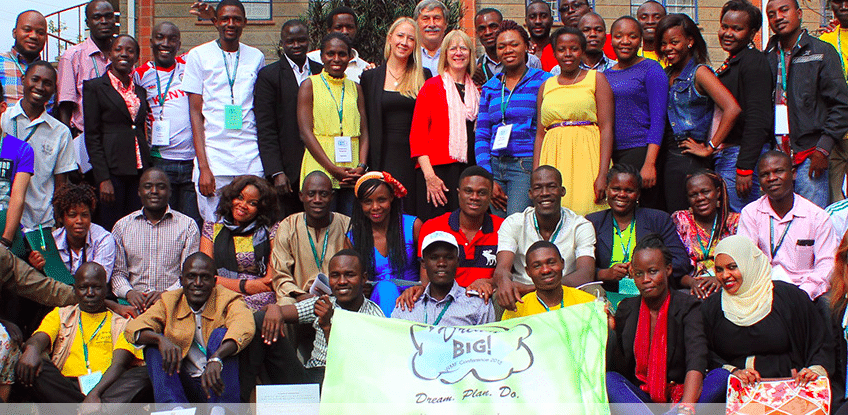The majority of students planning to attend college are looking for ways to boost their school budget. Without any type of financial aid, paying for a college education is practically impossible. College grants make it simpler to finance the high expense of tuition, whether you’re an undergraduate or a PhD candidate. It takes time, study, and effort to find the perfect grant programs to assist pay for college.
In this post, we shall take a survey of the 20 best grants for college students explaining how you can access these grants.
Make sure you carefully read through this article as it promises to be insightful and informative.
Table of Contents
- What Is A Grant?
- Types of College Grants
- How to Get Grants for College
- 20 Best Grants For College Students
- #1. Federal Supplemental Educational Opportunity Grant (FSEOG)
- #2. Illinois National Guard Grant
- #3. TEACH grant program
- #4. AAUW Career Development Grant
- #5. Federal Pell Grants
- #6. Zell Miller Grant Program
- #7. Texas Tuition Equalization Grant
- #8. KHEAA College Access Program Grant
- #9. NCAA Graduate Student Research Grant
- #10. Alexia Foundation Student Grant
- #11. Pennsylvania Blind or Deaf Beneficiary Grant
- #12. Carole Fielding Student Grant
- #13. Mary Minglen Memorial Grant
- #14. Chafee Grant for Foster Youth
- #15. Jose Marti Scholarship Challenge Grant
- #16. Iraq and Afghanistan Service Grant
- #17. David H. and Beverly A. Barlow Grant
- #18. Ike Crumbly Minorities in Energy Grant
- #19. Jackie Robinson Scholarship Grant
- #20. Gilbert Matching Student Grant
- Conclusion
- FAQs On Grants For College Students
- References
- We Also Recommend
What Is A Grant?
A grant, sometimes known as “gift aid,” is a type of free financial aid that provides a certain sum of money each year. Grants, unlike loans, are given based on merit or need and do not require repayment. The federal government, state commissions, and private or non-profit groups are the main recipients of grants. According to the National Center for Education Statistics, 85 percent of first-time, full-time undergraduate students in the United States receive grant assistance. That’s important because the average tuition at public four-year universities is $9,139, while private four-year universities charge $31,231 on average.
SEE ALSO: Poynter IFCN Innovation Grants Fund 2024
Types of College Grants
Understanding the various types of college grants is the first step in applying for them. There are grants to help with financial needs or grants that are specific to demographics, majors, or locations. Grants for college students are available from the federal and state governments, as well as schools and private institutions.
1. Federal Grants
Federal grants are administered by the U.S. government for students attending colleges, universities, and career schools.
Here are the four main kinds.
- Pell Grant – For students who demonstrate economic need
- Federal Supplemental Education Opportunity Grant (FSEOG) – For to students who demonstrate exceptional financial
- Iraq and Afghanistan Service Grant – For students whose parent or guardian died as a result of military deployment to Iraq or Afghanistan after the events of 9/11
- Teacher Education Assistance for College and Higher Education Grant (TEACH) – For students who agree to teach in a high-need field in an area serving low-income students
Pell grants are the most regularly awarded grant. Qualifications and award amount change, so check the Federal Student Aid website for current information.
2. State Grants
State grant programs vary across borders, but all are intended for students who stay in-state. Some are made to keep college graduates employed in their alma mater state and some are designed to keep high school students within the state school system.
State grants are awarded for a large cross-section of criteria. Like the TEXAS (Toward Excellence, Access, and Success) grant, which is for community college or technical school graduates going to a public university in Texas. The New York State Math and Science Teaching Incentive rewards grants for undergrads and graduates studying education who agree to teach within the state for five years.
The amounts states award vary, too. Georgia is generous, averaging above $2,000 per student, but the average award is only $500 in 21 other states.
3. School Grants
Schools themselves are one of the best places to search for grants. According to the College Board, between 2010 and 2020, grant aid from schools increased by a whopping 72% with an average award of $17,250 per student.
Each school has its own specific grants or private endowments earmarked for grants, that cover an array of eligibility requirements.
With various kinds of grants available from educational institutions themselves, research every opportunity possible.
4. Private Grants
Because private grants come from businesses and organizations other than the government or schools, they take a little more effort to find. You can access a scholarship simply by searching on search engines. A good rule of thumb is to follow your interests and crowdsource ideas.
Here is where most private grants can be found.
- Philanthropic Institutions
- Professional Associations
- Corporations and businesses
- Advocacy Groups
- Religious Institutions
- Trade Unions
How to Get Grants for College
Here’s a list of all the requirements before you start and the three basic steps you need to take in order to get a grant for college:
1. Fill Out FAFSA
All federal, state, and some school grants all require Free Application for Federal Student Aid or FAFSA. Some private grants may also need this information. The application opens the October the year before classes start, but deadlines vary by school and state.
2. Fill Out Additional Forms
States, schools, and private grants may require additional applications such as the CSS Profile, so be sure to ask and note all deadlines.
3. Compile Additional Information
Some grants require other documentation such as transcripts, letters of recommendations and personal essays. Find out everything needed, and start a file to keep things organized.
READ ALSO: How Can I Get Private Student Loans For Bad Credit in 2024? Full Guide
20 Best Grants For College Students
Below is a list of the 20 best grants for college students:
#1. Federal Supplemental Educational Opportunity Grant (FSEOG)
This is a federal grant that helps students further their education. The U.S. Department of Education reserves the Federal Supplemental Educational Opportunity Grant (FSEOG) for American citizens or legal residents who demonstrate severe financial need. The campus-based scholarship, which ranges from $100 to $4,000 per year, is distributed to approved universities around the country. Funds will be issued directly to eligible full-time or part-time undergraduates’ student accounts at least twice every academic year.
The annual deadline for this grant is June 30th.
#2. Illinois National Guard Grant
For up to six full-time academic years, the Illinois Student Assistance Commission (ISAC) awards the Illinois National Guard Grant, which waives applicable tuition credits at public, in-state two or four-year universities. Students must have completed one full year of National Guard service, be an enlisted member or officer, have an acceptable GPA, not be in default, and be pursuing their first undergraduate degree to be eligible for these college funds. The grant can be used in conjunction with the Post-9/11 GI Bill.
The deadline for this grant is October 1st, annually.
#3. TEACH grant program
The Teacher Education Assistance for College and Higher Education (TEACH) Grant Program offers $4,000 per year to highly eligible students pursuing a bachelor’s or master’s degree in education at an approved U.S. college. Applicants for these college funds must have a minimum GPA of 3.25 and be studying for a high-need field such as TESOL, special education, science, reading, math, or foreign language. Recipients must pledge to teach at a low-income, PreK-12 school for at least four academic years.
The deadline for application for this grant is June 30th, annually.
SEE ALSO: Graham Foundation Grants to Individuals 2024 [$30,000]
#4. AAUW Career Development Grant
Career Development Grants, worth $2,000 to $12,000, are available from the American Association of University Women (AAUW) to female students with a bachelor’s degree who are pursuing a master’s program, post-baccalaureate certificate, or professional degree. Women of color and women entering non-traditional areas are given priority. Candidates for these college grants must be citizens of the United States and enrolled in regionally authorized four-year universities for on-campus or online learning. A $35 filing fee must be paid using PayPal.
The application deadline for this grant is December 15th annually.
#5. Federal Pell Grants
The Federal Pell Grant program, which is worth up to $5,815 for 12 semesters, is provided by the US Department of Education based on financial need to students who file a FAFSA form. Candidates must be pursuing their first associate or bachelor’s degree full-time or part-time at an authorized U.S. college and will be enrolled for a full academic year. Expected Family Contribution (EFC) and cost of attendance will determine the monetary worth.
The deadline for this grant is June 30th, annually.
#6. Zell Miller Grant Program
The Zell Miller Grant Program was established by the Georgia Student Finance Commission (GSFC) to fund in-state undergraduate tuition at public institutions in the Technical College System of Georgia or the University System of Georgia with a minimum GPA of 3.5. Candidates must not have completed a bachelor’s degree or received grant funds for 63 semester hours to be eligible. Recipients may also be eligible for the Strategic Industries Workforce Development Grant, (SIWDG) depending on their FAFSA form. The last day of the term is the deadline.
#7. Texas Tuition Equalization Grant
The Texas Tuition Equalization Grant, worth up to $5,046 per year, is awarded by the College for All Texans to in-state residents or non-resident National Merit Finalists who are receiving $1,000 or more in competitive scholarships. Recipients must attend a private, non-profit Texas university, demonstrate financial need, have a minimum 2.5 GPA, finish at least 24 courses each year, register for Selective Service, and enroll for at least three-quarters of the academic year. The FAFSA application is used to determine eligibility automatically.
#8. KHEAA College Access Program Grant
The College Access Program (CAP) Grant was established by the Kentucky Higher Education Assistance Authority (KHEAA) to provide up to $1,900 to financially needy state citizens attending participating public or private undergraduate colleges. To be eligible, you must have lived in Kentucky for at least 12 months, be pursuing an associate or bachelor’s degree, and be enrolled at least half-time. Because funding is limited, applicants should submit the FAFSA as soon as possible after January 1st, annually.
#9. NCAA Graduate Student Research Grant
The NCAA awards a $7,500 Graduate Student Research Grant each year to encourage master’s and doctoral students at member schools to do cutting-edge research on college student-athletes psychosocial well-being. Graduates with an emphasis on the social and behavioral sciences, especially sport psychology, are given priority. These college grants will be awarded to U.S. citizens who are pursuing accredited U.S. studies, demonstrating research competency, and submitting research projects worthy of publication in NCAA Champion magazine.
The deadline for application is December 1st, annually.
#10. Alexia Foundation Student Grant
The Alexia Foundation Student Grant, named after a Syracuse University student who died in the terrorist bombing of Pan Am Flight 103 in 1988, awards $1,500 to full-time students enrolled in accredited U.S. or international colleges. Undergraduate and graduate applicants must be studying photography or related media, have less than one year of full-time professional experience, have a portfolio of high-quality photos, and demonstrate a commitment to promote world peace through art to be considered. The deadline for application is March 11th.
SEE ALSO: UNICAF Scholarships for International Students, 2024
#11. Pennsylvania Blind or Deaf Beneficiary Grant
The Pennsylvania Higher Education Assistance Agency (PHEAA) awards a $500 Blind or Deaf Beneficiary Grant to in-state individuals who provide written certification from a licensed physician indicating their serious visual and/or hearing impairment each spring. Students must be accepted for full-time or half-time enrollment at an eligible Pennsylvania post-secondary institution before filing the FAFSA. Those with a minimum GPA of 2.0 can renew the grant for a maximum of five years.
The deadline for application is March 31st, annually.
#12. Carole Fielding Student Grant
The Carole Fielding Student Grant, worth $1,000, is awarded annually by the University Film & Video Association (UFVA) to undergraduate or graduate students studying full-time at approved U.S. schools to study film, television, video, or new media production. Applicants must submit a statement of intent, a one-page CV, a recommendation from a supporting UFVA member, a budget plan, and a script or research proposal for an upcoming project to be considered for these college awards.
The deadline for application is December 15th, annually.
#13. Mary Minglen Memorial Grant
The American Occupational Therapy Association (AOTA) grants a $1,200 Mary Minglen Memorial Grant each year to full-time students pursuing a graduate degree in clinical occupational therapy at a recognized U.S. college. Students must have completed at least one year of post-baccalaureate work, have a cumulative GPA of at least 3.0, attach two recommendation letters, and show potential for OT practice to be considered. For New Yorkers, there’s also the Carolyn Kohn Memorial Grant.
The deadline for application is October 29th, annually.
#14. Chafee Grant for Foster Youth
The Chafee Grant for Foster Youth, worth $5,000 per year, is offered by the California Student Aid Commission (CSAC) to cover the costs of career training or college education for current or former foster youth under the age of 22. Eligible California residents must be enrolled at least half-time at a public or private university in the United States and make good academic progress. The California Dream Act makes it unnecessary to have a social security number.
The deadline is March 2nd, annually.
#15. Jose Marti Scholarship Challenge Grant
The Jose Marti Scholarship Challenge Grant, administered by the Florida Department of Education (FDOE), awards $2,000 annually to students of Hispanic ancestry who were born in or have natural parents who were born in Mexico, the Caribbean, Central America, or South America. Applicants must attend a participating Florida university, have a minimum unweighted GPA of 3.0, demonstrate unmet need, take at least 12 courses per semester, and not overdue loan payments to be eligible for these college grants. The deadline is April 1st.
#16. Iraq and Afghanistan Service Grant
The Iraq and Afghanistan Service Grant is another federal college grant that can award up to $5,775 per year. Applicants under the age of 24 must have a parent or guardian who died in the Armed Forces after September 11, 2001, and be enrolled at least part-time at an accredited college in the United States. It’s for citizens of the United States or eligible non-citizens who meet all of the Federal Pell Grant requirements except the Expected Family Contribution (EFC).
The deadline is June 30th, annually.
#17. David H. and Beverly A. Barlow Grant
The David H. and Beverly A. Barlow Grant, funded by the American Psychological Association (APA), is worth $9,000 and is awarded to graduate students who are conducting innovative research on anxiety disorders. These college funds are only available to non-profit U.S. higher education institutions that can demonstrate superior clinical knowledge and have IRB study approval. The Scott Mesh Honorary Grant and the Clara Mayo Grant are two more APA college grants.
The deadline for applications is September 15th, annually.
#18. Ike Crumbly Minorities in Energy Grant
The Ike Crumbly Minorities in Energy Grant, sponsored by the American Association of Petroleum Geologists (AAPG), honors the director of the Cooperative Developmental Energy Program (CDEP). Female and ethnic minority students of African American, Hispanic, Asian, and Native American backgrounds are eligible for this $1,000 prize. Applicants must be enrolled in a master’s or doctoral program that focuses on the development of petroleum and other energy resources, and they must devote their thesis study to this field.
The deadline for applications is February 15th, annually.
#19. Jackie Robinson Scholarship Grant
The Jackie Robinson Scholarship Grant, worth $28,000 over four years, is given to minority high school seniors who want to pursue a bachelor’s degree from an authorized senior college or university in the United States. The chosen candidates must have leadership potential, be committed to community service, be residents of the United States, have an SAT or ACT score of at least 1,000 or an ACT score of 21, and submit one letter of recommendation. The deadline for applications is February 15th, annually.
#20. Gilbert Matching Student Grant
The Gilbert Matching Student Grant Program (GMSGP) is funded by the Massachusetts Department of Higher Education and provides up to $2,500 to lawful in-state residents who are enrolled full-time at participating universities for their first diploma, associate’s degree, or bachelor’s degree. Students must have lived in Massachusetts for at least 12 months, be US citizens, not be in default on student loans, and demonstrate financial need to be eligible for these college funds. Institutions will spend the full amount of the grant they were awarded. The deadline for this grant is April 30th, annually.
Conclusion
Understanding the various types of college grants is the first step in applying for them. This article presents a plethora of available grants for college students to choose from. Make the best out of this information at your disposal.
FAQs On Grants For College Students
The standards for continuing to be eligible for a grant differ by program. Please check the page for your specific award to see if you fulfill the conditions for continuing to be eligible for that program.
You will have to repay a grant when You dropped out of the program for which you received the grant early, or your enrollment status changed in a way that made you ineligible for the grant.
The majority of awards are only given to students who are in financial need. As a result, it must be noted that you require financial assistance.
Start by filling out a Free Application for Federal Student Aid (FAFSA) form if you’re interested in grants or any other type of federal student aid. Fill out the FAFSA form every year you’re in school to keep receiving federal student aid.
Grants and scholarships come from a variety of sources, thus their deadlines vary. Make sure you fill the FAFSA as soon as possible when it becomes available each year on October 1 for federal and state grants. Check with the scholarship source to discover when the application is due for scholarships. Some scholarships are accessible all year long, while others have strict deadlines.
External scholarships could affect your financial aid eligibility or reduce the amount of money you receive from a school. External scholarships, for example, will reduce the initial amount of loans and/or work-study you get from Cornell University. To discover more about your institution’s financial assistance regulations and the role of outside scholarships in student aid packages, contact them.





